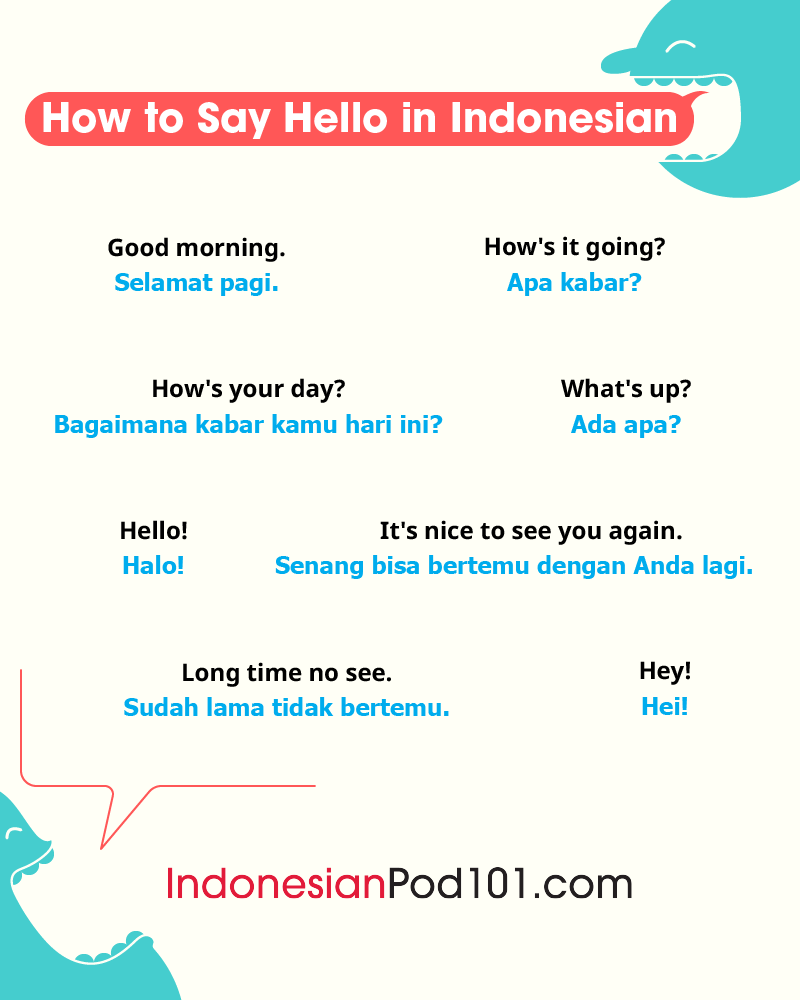Good Morning in indonesian

Good Morning in Indonesian: Your Complete Guide to Morning Greetings
Starting your day with a warm greeting is a universal practice that brings positivity and joy. If you’re looking to brighten someone’s morning in Indonesia, knowing how to say “Good Morning” can make a big difference. In this blog post, we’ll explore how to say “Good Morning” in Indonesian, along with some cultural insights and additional morning wishes that you can use to spread cheer.
How to Say Good Morning in Indonesian
In Indonesian, “Good Morning” is translated as “Selamat Pagi.” This phrase is commonly used from early morning until around noon, making it the perfect way to greet friends, family, colleagues, and even strangers as you start your day.
Cultural Insights: The Importance of Greetings in Indonesia
In Indonesian culture, greetings hold significant importance. They reflect respect and friendliness, which are highly valued traits in Indonesian society. Saying “Selamat Pagi” not only shows that you acknowledge the other person’s presence but also conveys a sense of warmth and good intentions for the day ahead.
Variations and Additional Morning Wishes
If you want to expand your greeting repertoire, here are some variations and additional morning wishes you can use:
- Selamat Pagi, teman! – Good morning, friend!
- Selamat Pagi, keluarga! – Good morning, family!
- Selamat pagi, semoga harimu menyenangkan! – Good morning, may your day be enjoyable!
- Selamat pagi, semoga kamu selalu beruntung! – Good morning, may you always be lucky!
- Selamat pagi, semoga hari ini penuh berkah! – Good morning, may this day be full of blessings!
Tips for Using Indonesian Greetings
Tone and Body Language: When greeting someone in Indonesia, a friendly tone and a warm smile can enhance your greeting significantly. Body language plays a crucial role in communication.
Timing: Use “Selamat Pagi” primarily in the morning until around noon. After that, you can use “Selamat Siang” (Good Afternoon) for a proper greeting.
Practice Makes Perfect: If you’re learning Indonesian, practicing your pronunciation can help you sound more natural. Listening to native speakers can also provide insight into the correct intonation and rhythm.
Conclusion
Whether you’re planning a trip to Indonesia or simply want to connect with Indonesian-speaking friends, knowing how to say “Good Morning” and other morning wishes is a fantastic way to start. Remember to embrace the cultural significance of greetings, and use them to spread positivity and warmth.
For more inspirational and cheerful messages to start your day, visit GoodMorningWishes.net for a variety of morning greetings, quotes, and more!
By incorporating these Indonesian phrases into your daily interactions, you not only enhance your language skills but also foster connections that transcend cultural barriers. Happy greeting and selamat pagi!













